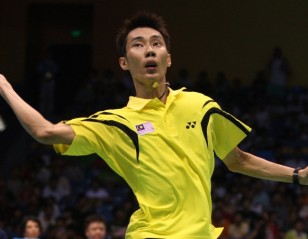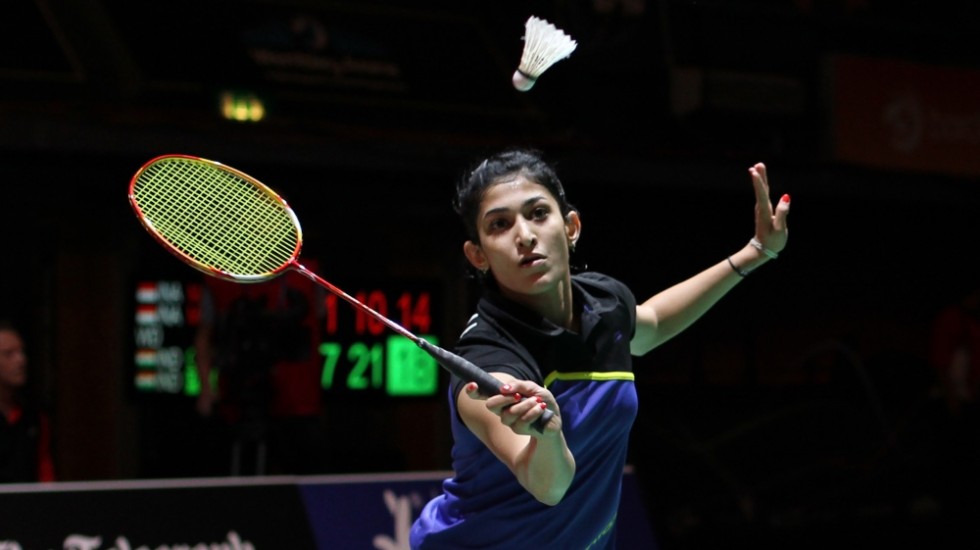
London 2012: World Championships bronze inspires Ponnappa
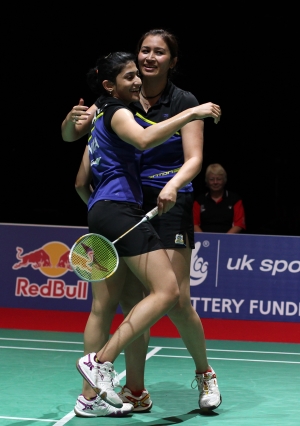 History and current form favour China for the women’s doubles gold at the London Olympics but some opposing shuttlers hope to have a say in the outcome.
History and current form favour China for the women’s doubles gold at the London Olympics but some opposing shuttlers hope to have a say in the outcome.
Among them is Ashwini Ponnappa who, along with Jwala Gutta, won the bronze medal at last year’s World Championships. The pair knows if they can match that performance or go one better, it will catapult them into Indian sporting immortality. Medals have been rare for their country in Olympic competition; only winning seven in individual events during the past 60 years.
Ponnappa and Gutta are an interesting combination. While Gutta is the more colourful and outspoken of the two, Ponnappa is soft-spoken and weighs her words well before she opens up. Gutta is the senior partner, having begun her career six years before Ponnappa came on the scene. Gutta’s regular partner was Shruti Kurien at the time and, though they were undisputed national champions for a long time, they had limited international success. The two split around 2009 and Gutta found the partner she was looking for in Ponnappa. The partnership works because the 22-year-old trusts Gutta as the leader and respects her reading of match situations and opponents. While 28-year-old Gutta (pictured left) is a clever net player, Ponnappa does the running and hitting from the back court. It’s a union that has served India well in the last three years; boasting Commonwealth Games gold to add to their bronze at Worlds.
“I am confident, but at the same time I don’t want to sound overconfident,” said Ponnappa, of their Olympic chances. “It depends how we play. The important thing is that the two of us are going and we hope to start well.”
Ponnappa (pictured right) is a Bangalore girl but actually from Kodava stock. The Kodavas are the hill people of Kodagu in south India with their own distinctive culture and language. They are especially renowned as a martial and athletic people who have produced famous soldiers, athletes and hockey players. Ponnappa is probably the first Kodava to represent India in badminton. The athletic genes of her forefathers have always been evident in Ponnappa’s case, even in her youthful days. Her fitness and strength have long been lauded as exemplary by her coaches at Prakash Padukone Badminton Academy during her junior years.
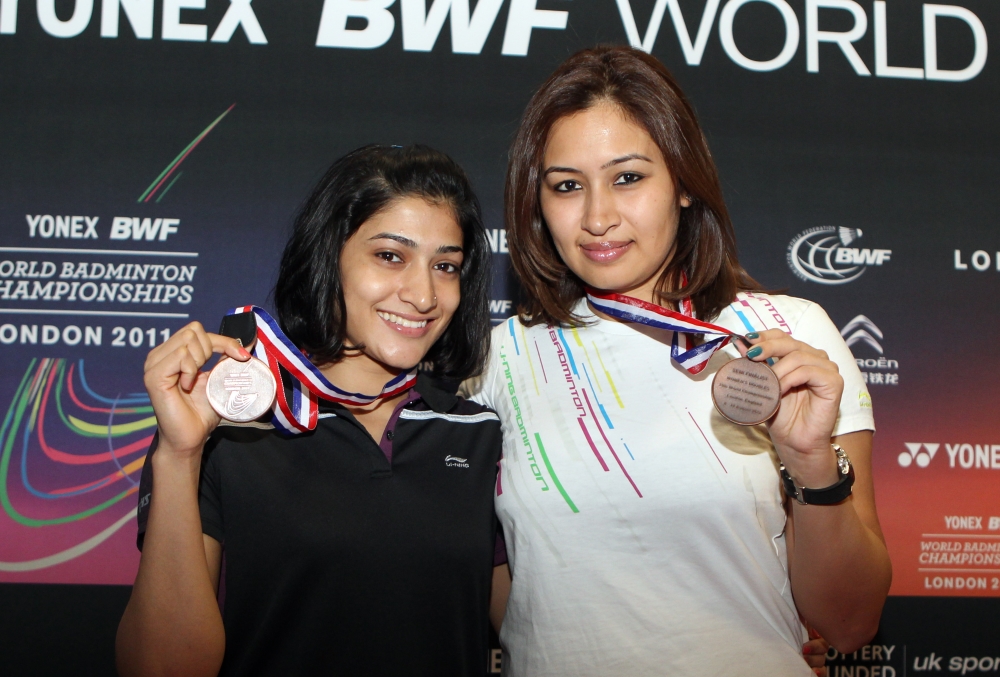
“When you play at international level, you are all at the same as far as technique goes,” noted Ponnappa. “However, we can’t deny that we are not as physically strong and flexible as the Chinese since our Indian body type is not really cut out to be that way. But we put in a lot of effort to improve our strength and fitness to compete at that level.”
It will be a difficult task for the two to make a mark at the Olympics. The top Chinese and Korean pairs such as – Wang Xiaoli/Yu Yang, Tian Qing/Zhao Yunlei and Ha Jung Eun/Kim Min Jung – are in a league of their own. However, Gutta and Ponnappa fancy their chances against the other top-ten pairs. The World Championships bronze has given them the belief that Olympic success is not as far-fetched as it might seem.
“If we keep working hard and playing top tournaments, I am sure it will be just a matter of time before we establish ourselves in the top-five of the world,” declared Ponnappa.
“I know Gutta and I can get a medal.”
If they do return with a medal, women’s doubles badminton – long ignored in India – will be the toast of the nation.
Olympic and Paralympic News
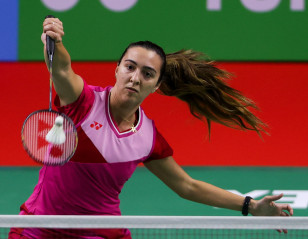
Tokyo 2020: A Parliamentarian at the Olympics 22 July 2021
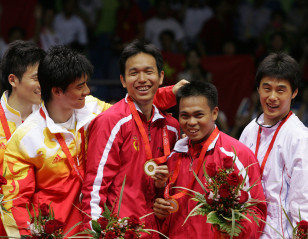
Cai Yun, Fu Haifeng Pay Tribute to ‘Cannon’ Kido 19 June 2021
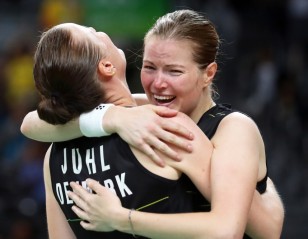
History-Making Danes Thwart China – Day 6 Session 1: Rio 2016 16 August 2016
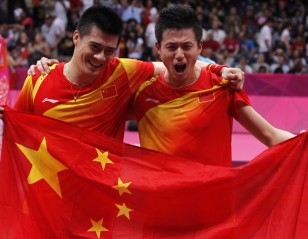
London 2012: Day 9 – Men’s Doubles: Careers Complete with Golden Sweep 5 August 2012
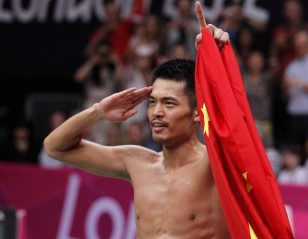
London 2012: Day 9 – Men’s Singles: He’s ‘Dan’ It! 5 August 2012
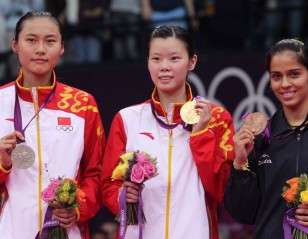
London 2012: Day 8 – Women’s Singles : Li Xuerui Repays Country’s... 4 August 2012
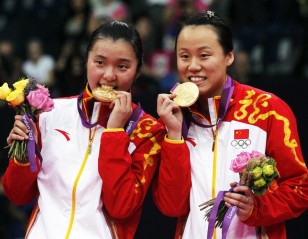
London 2012: Day 8 – Women’s Doubles: Double Take for Zhao Yunlei 4 August 2012
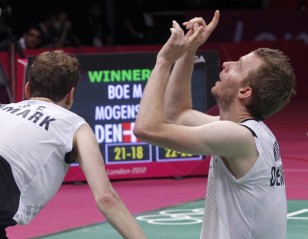
London 2012: Day 8 – Men’s Doubles Semis: Korea’s Loss is Denmark’s... 4 August 2012
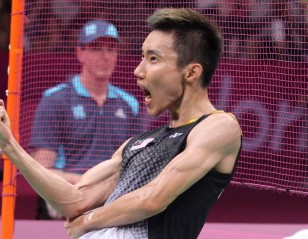
London 2012: Day 7 – Men’s Singles Semis: Lin Dan, Lee Chong... 3 August 2012
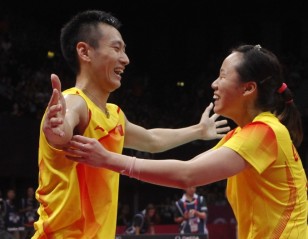
London 2012: Day 7 – Zhang-Zhao Tops World of Mixed Doubles 3 August 2012
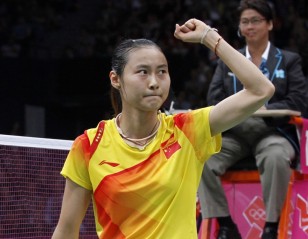
London 2012: Day 7 – Women’s Singles Semis: Wang Yihan Routs Nehwal 3 August 2012
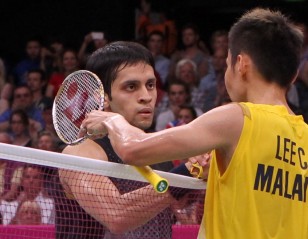
London 2012: Day 6 – Session 3: Lin Dan, Chong Wei in... 2 August 2012
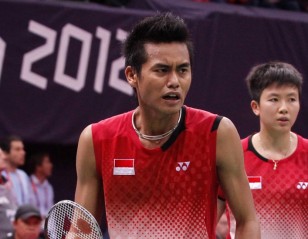
London 2012: Day 6 – Session 2: China Assured of Mixed Doubles... 2 August 2012
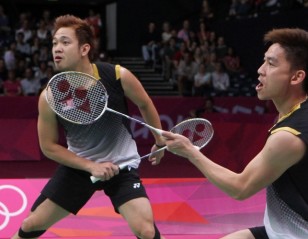
London 2012: Day 6 – Session 1: Four Countries Eye Men’s Doubles... 2 August 2012
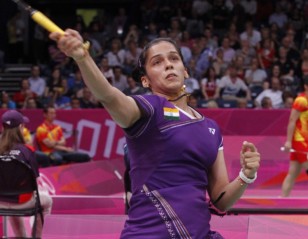
London 2012: Day 5 – Session 3: Great Medal Expectations for Saina 1 August 2012
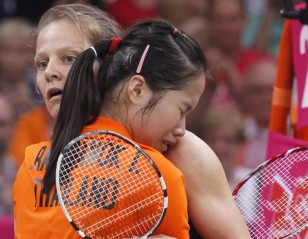
London 2012: Day 5 – Session 2: Juliane Schenk Crashes Out to... 1 August 2012
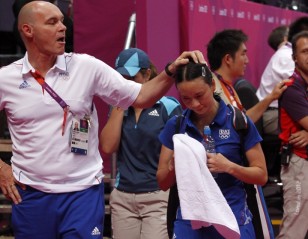
London 2012: Day 5 – Session 1: Final Bow for European Greats 1 August 2012
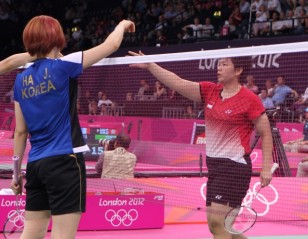
London 2012: Koreans’ Appeal Rejected; Indonesia’s Withdrawn 1 August 2012
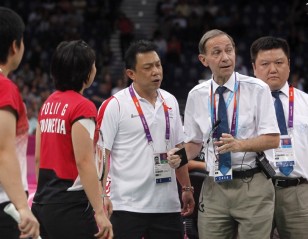
London 2012: Four Pairs Disqualified 1 August 2012
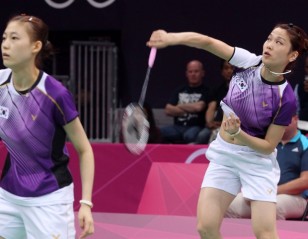
London 2012: Badminton Players to Answer Charges 1 August 2012
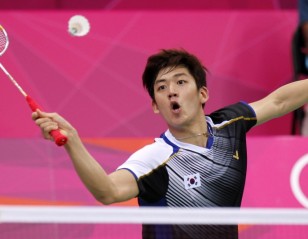
London 2012: Day 4 – Session 3: Lee Yong Dae Looking to... 31 July 2012
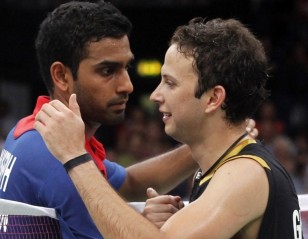
London 2012: Day 4 – Session 2: Cordon Creates Continental History 31 July 2012
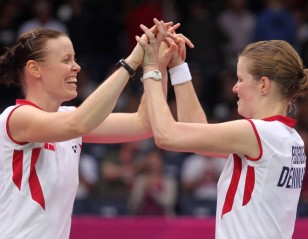
London 2012: Day 4 – Session 1: Chinese Doubly Surprised! 31 July 2012
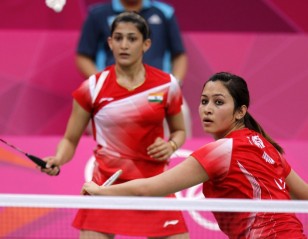
London 2012: Day 3 – Session 3: Korea’s Top Guns Bow Out 30 July 2012
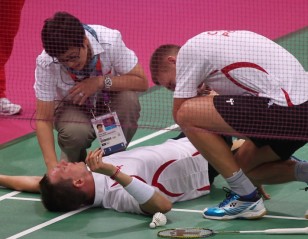
London 2012: Day 3 – Session 2: Injury Pulls Poles Apart 30 July 2012
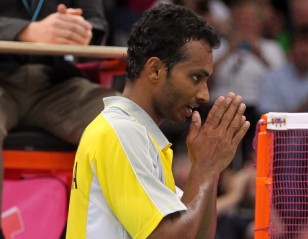
London 2012: Day 3 – Session 1: Olympics Gets Even Better for... 30 July 2012
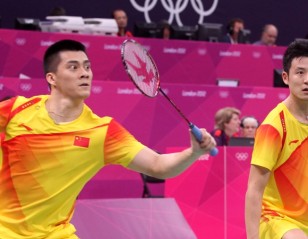
London 2012: Day 2 – Session 3: Chinese Focused on Golden Finale... 29 July 2012
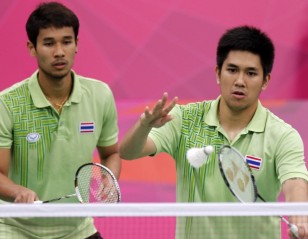
London 2012: Day 2 – Session 2: Beware the Baby-Faced Assassins 29 July 2012
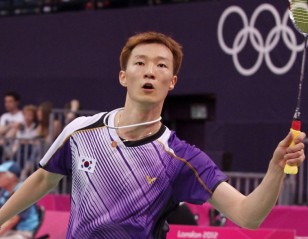
London 2012: Day 2 – Session 1: Brits Going Home from the... 29 July 2012
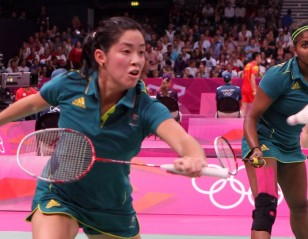
London 2012: Day 1 – Session 3: Australians’ Fighting Spirit to the... 28 July 2012
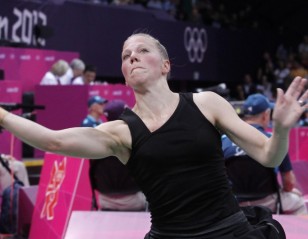
London 2012: Day 1 – Session 2: Anu ‘Finnish-ed’ Losing at Olympics 28 July 2012
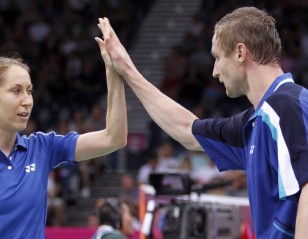
London 2012: Day 1 – Session 1: Russians Surprise British Hopefuls 28 July 2012
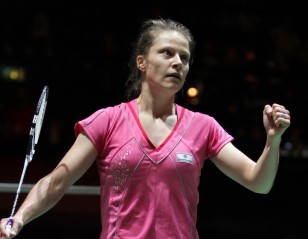
London 2012: Weight of Country and Continent on Schenk’s Shoulders 27 July 2012
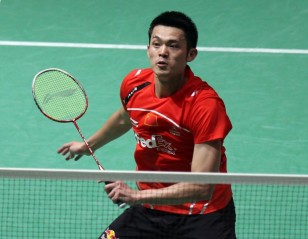
London 2012: Lin Dan: ‘I was just an ordinary kid like anyone... 27 July 2012
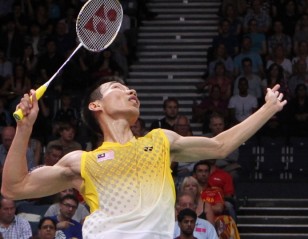
London 2012: Lee Chong Wei takes on ghost of Wembley 27 July 2012
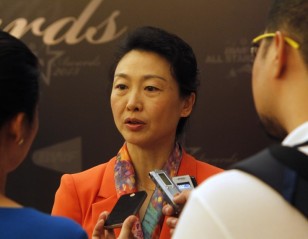
London 2012: Another Starry Accomplishment in Li Lingwei’s Brilliant Career 26 July 2012
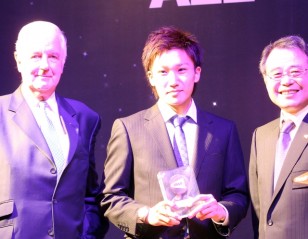
London 2012: BWF President Hails ‘Worthy Recognition’ For Sir Craig Reedie 26 July 2012
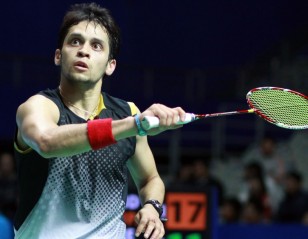
London 2012: Self-belief breathes new life into Kashyap 26 July 2012
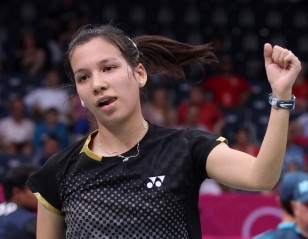
London 2012: Brother and sister create badminton history 26 July 2012
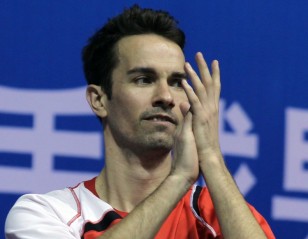
Robertson lights up Wembley Arena with Olympic torch 25 July 2012
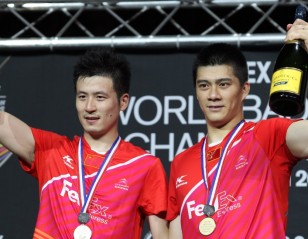
London 2012: Cai and Fu: Seeking the missing piece to their collection 24 July 2012
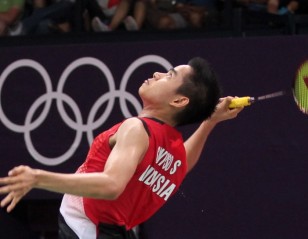
London 2012: Olympic Games LIVE DRAW 23 July 2012
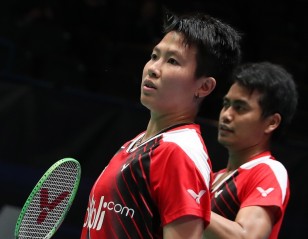
London 2012 Lilyana Natsir: The key to Indonesia’s golden hopes 19 July 2012
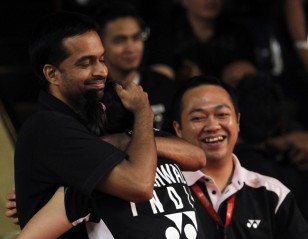
London 2012: India’s chief strategist plots London game plan 15 July 2012
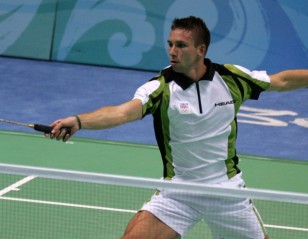
London 2012: ‘Czech’ out Petr in Opening Ceremony – badminton’s gritty warrior... 12 July 2012
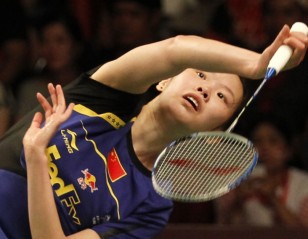
London 2012 Olympic Games Qualification: Li Xuerui’s London calling 10 July 2012
